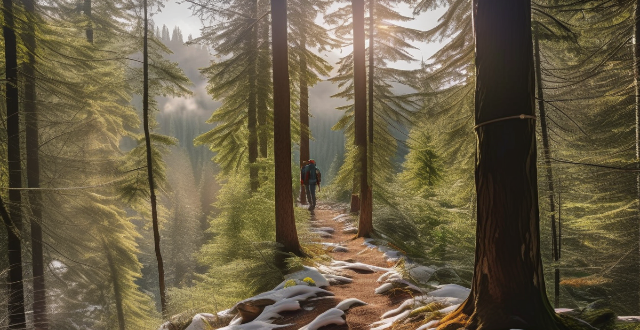Mountain climbing is a physically demanding activity that comes with several health risks, including Acute Mountain Sickness (AMS), falls and injuries, extreme weather conditions, dehydration and heat-related illnesses, and wildlife encounters. To mitigate these risks, climbers should ascend gradually, stay hydrated, use proper gear, check weather forecasts, dress in layers, consume electrolyte supplements, store food securely, and carry non-lethal deterrents for animal encounters. It's crucial to take appropriate precautions and consult with healthcare professionals and experienced climbers before embarking on this adventure.

Health Risks Associated with Mountain Climbing
Mountain climbing, or rock climbing, is a physically demanding activity that involves scaling natural or artificial rock formations. While it can be an exhilarating experience, there are several health risks associated with mountain climbing that you should be aware of before embarking on this adventure. Here are some of the most common risks and how to mitigate them:
Acute Mountain Sickness (AMS)
Acute Mountain Sickness, also known as altitude sickness, is a condition that can occur when you ascend to high altitudes too quickly. Symptoms include headache, nausea, dizziness, and fatigue. In severe cases, it can lead to High Altitude Cerebral Edema (HACE) or High Altitude Pulmonary Edema (HAPE), which can be life-threatening.
Mitigation Strategies:
- Gradual Ascent: Allow your body to acclimate by ascending slowly and spending time at different altitudes.
- Stay Hydrated: Drink plenty of water to prevent dehydration, which can worsen symptoms.
- Medication: Consider taking medications like acetazolamide to help prevent AMS under the guidance of a healthcare professional.
Falls and Injuries
Falls are one of the most significant risks in mountain climbing, leading to fractures, sprains, and other injuries. The risk increases with the difficulty of the climb and the height of the fall.
Mitigation Strategies:
- Proper Gear: Always use appropriate safety gear such as ropes, harnesses, helmets, and climbing shoes.
- Skill Training: Ensure you have adequate training and experience for the level of climb you attempt.
- Buddy System: Always climb with a partner who can assist in case of an emergency.
Extreme Weather Conditions
Mountains can present extreme weather conditions, including sudden temperature drops, strong winds, and storms. These conditions can increase the risk of hypothermia, frostbite, and other cold-related illnesses.
Mitigation Strategies:
- Check Weather Forecast: Be informed about the weather conditions before starting your climb.
- Layered Clothing: Dress in layers so you can adjust your clothing according to the temperature changes.
- Emergency Shelter: Carry emergency shelter like a tent or bivouac sack in case you need to wait out a storm.
Dehydration and Heat-Related Illnesses
While cold temperatures are often associated with mountain climbing, heat-related illnesses can also occur, especially during strenuous activities in warm climates. Dehydration and heat exhaustion are common issues that can lead to more severe problems like heatstroke if not addressed promptly.
Mitigation Strategies:
- Stay Hydrated: Drink sufficient fluids throughout the climb to replace lost sweat.
- Rest and Shade: Take regular breaks in shaded areas to cool down and rest.
- Electrolyte Supplementation: Consider consuming electrolyte supplements to replenish salts lost through sweating.
Wildlife Encounters
Depending on the location, mountain climbers may encounter wildlife ranging from snakes and insects to larger animals like bears or mountain goats. These encounters can pose threats to your safety and health if not handled properly.
Mitigation Strategies:
- Wildlife Awareness: Learn about the local wildlife and their behaviors before setting out on your climb.
- Proper Storage: Keep food and scented items securely stored to avoid attracting animals.
- Non-Lethal Deterrents: Carry bear spray or other non-lethal deterrents as recommended by local authorities for defense against potentially aggressive animals.
In conclusion, while mountain climbing offers incredible experiences and breathtaking views, it's essential to be aware of these health risks and take appropriate precautions to ensure a safe and enjoyable adventure. Always consult with healthcare professionals and experienced climbers before planning your trip, and never underestimate the power of nature when pursuing this thrilling sport.